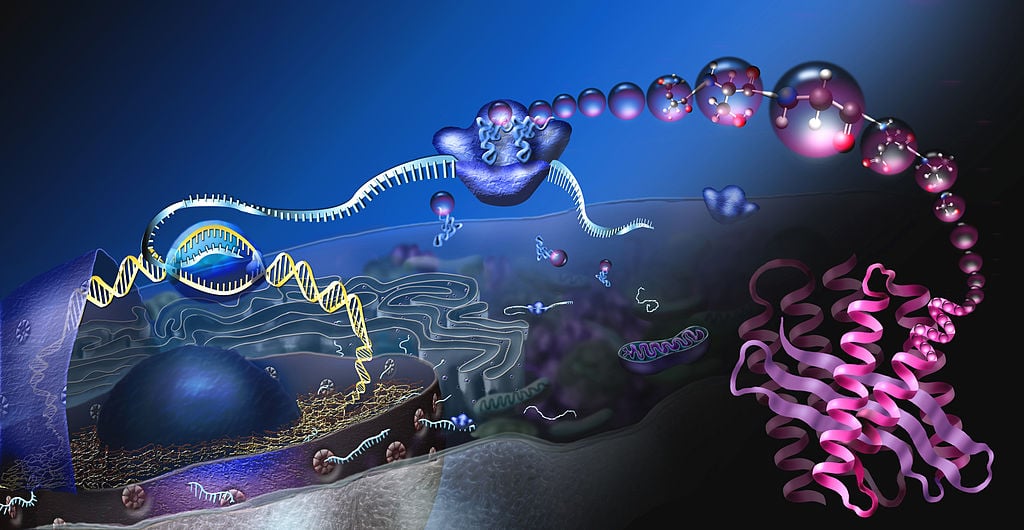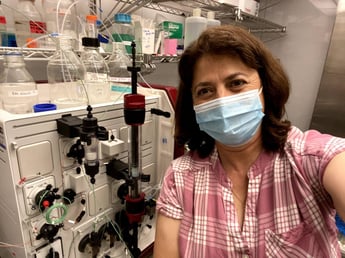In mid-March, the University of Colorado Cancer Center Cell Technologies Shared Resource shut down along with almost all the other labs and technologies on the Anschutz Medical Campus. Then shared resource director, Steve Anderson, PhD, got an email from a colleague asking if the facility could make COVID-19 proteins. They could: The shared resource has been making proteins for over 15 years.
“I told [shared resource manager] Lori [Sherman] to turn on the instruments and thaw the cells,” Anderson says. “Within two weeks, Lori had opened the shared resource and we had given them purified COVID-19 protein.”
Lori Sherman,manager of CU Cancer Center Cell
Technologies Shared Resource
The reason for the quick approval was the need for serum antibody testing. Basically, for an antibody test, doctors introduce viral proteins into a sample of a patient’s blood serum and watch to see if immune system antibodies recognize and bind these viral proteins. If the blood serum of a patient or even an asymptomatic individual has virus-specific antibodies, they have almost certainly been in contact with the virus.
For COVID-19 antibody tests, doctors need COVID-19 proteins, and the CU Cancer Center Cell Technologies Shared Resource can make them.
“There are at least three reasons this is important,” Anderson says. “First, serum testing can identify patients who have had the disease and people with COVID-19 antibodies may be able to return to work. second, antibodies might be able to be used therapeutically. And third, it’s going to take basic research with these proteins to figure out how to combat COVID-19 long-term, and to make the discoveries we need to be better prepared for this and future diseases.”
Because the CU Cancer Center Cell Technologies Shared Resource is unique in the region, the lab may deliver the COVID-19 proteins needed for serum antibody testing not only to the Colorado community, but also to Wyoming, Montana, and potentially other states as well.
“Last week I handed off my first big amount of COVID-19 protein they’re putting into testing,” says Lori Sherman.
Interestingly, protein manufacture uses strategies similar to viral infection. Viruses inject genetic material into cells that hijack the cells’ manufacturing machinery to make new viruses; protein manufacture uses virus-like “vectors” to inject protein blueprints into cells, using the cells’ manufacturing machinery to make the protein. Working with CU pathologist Dara Aisner, MD, PhD, and CU immunologist Tem Morrison, PhD, the group was able to get COVID-19 vectors. And the shared resource has a couple different cell types for use in manufacturing proteins with these vectors.
“In addition to serum testing, many labs are working with these proteins to try to find a small-molecule inhibitor against COVID-19 – a way to block spike proteins on the virus from interacting with ‘receptors’ on the body’s cells. If you want to figure out how this works, you need the protein. People who want to study that interaction should be interested in the availability of these proteins,” Anderson says.
“So many scientists are trying to do this kind of protein production on their own and we want them to know they don’t have to,” Sherman says. “There’s a lot of need out there and hopefully we can help people out with it. We just want people to know we’re here and want to work with them to speed up COVID-19 testing and related research.”




